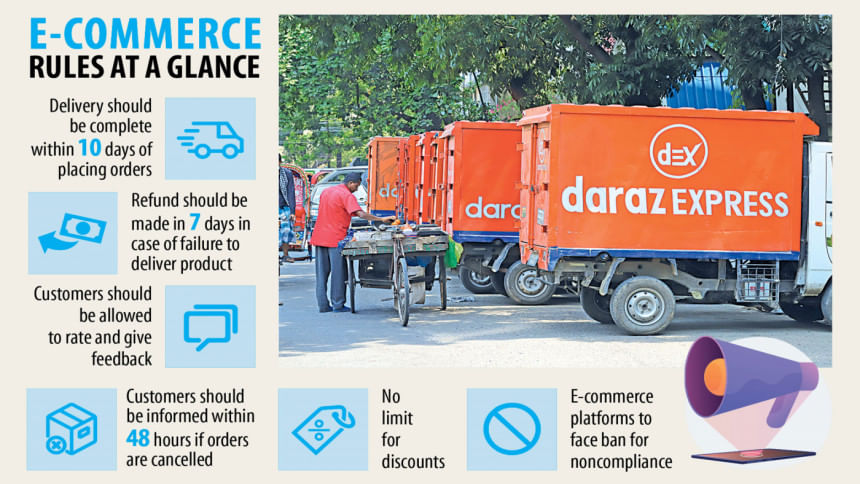Rules afoot for online consumer protection

The commerce ministry will publish a guideline for e-commerce platforms next month to protect the rights of online shoppers, curb anomalies on payments and refund, and ensure timely delivery.
Under the rule, which was formulated under the Digital Commerce Policy 2018, the products must be delivered to customers within a maximum of 10 days.
In the case of advance payments, the money has to be returned to shoppers within seven days if the platform fails to hand over products on time.
The move comes amid allegations against some e-commerce platforms that the customers are not getting the delivery of products or refunds within the promised schedule.
The Directorate of National Consumer Rights Protection has received more than 5,000 complaints against e-commerce companies in the last one year. In some cases, products have been supplied in a year, and the customers have not got the money back.
"Some e-commerce platforms are not making the timely delivery of products. Many customers do not get the refund properly. This guideline will safeguard the rights of customers," said Md Hafizur Rahman, director-general of the WTO Cell under the commerce ministry.
The ministry held a stakeholder meeting on the draft guideline, which will now be sent to the law ministry for vetting.
"We will publish it by next month," Rahman said.
About advance payment adjustment, the draft said if the shopper makes the payment in advance through debit and credit cards, bank transfer and mobile banking, the money has to be refunded in full within a maximum of seven days for any delivery failure.
Within 24 hours of the payment for a product, the item must be handed over to the deliveryman or delivery company, and the customer must be notified by telephone, e-mail, or SMS.
The delivery has to be made within a maximum of five days when the customer and the seller are located in the same city. The seller will get 10 days to supply the product if the shopper lives in another city.
For daily necessities, the delivery time should be shorter, according to the draft guideline.
There will be no separate delivery charges for multiple products in a single order. "The responsibility to guarantee the quality and accuracy of the products rests with the marketplace," it said.
A printed copy of the bill has to be given at the time of delivery of the products, citing the payment of value-added tax.
For the products that carry a warranty, the card should specify the period, the place of receiving after-sales services, and contact details.
Perishable goods have to be delivered as soon as possible.
Ratings and feedback on products should be posted on websites, apps or platforms so that potential shoppers can make the purchase decision based on the customers' reviews, the draft guideline said.
If it is not possible to hand over the product with the stipulated schedule, the firm will have to notify the customer by telephone, SMS, e-mail or other means within 48 hours of the placement of orders.
In the case of failure to comply with the provisions of the guideline, authorities may take legal action, including scrapping trade licence, company registration, or VAT registration of the seller and banning of the marketplaces.
The guideline also said a platform would not create any virtual wallet without the central bank's permission. Multi-level marketing or network business cannot be conducted through digital commerce, it said.
"It has become crucial to restore discipline in the e-commerce industry by implementing a proper guideline," said Muhammad Abdul Wahed Tomal, general secretary of the e-Commerce Association of Bangladesh.

 For all latest news, follow The Daily Star's Google News channel.
For all latest news, follow The Daily Star's Google News channel. 



Comments